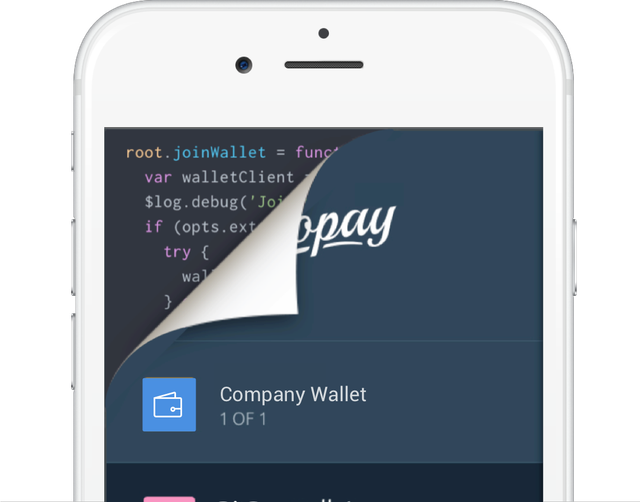Secure your Wallet Today
Are you trying to understand what Digital Wallets do and how to secure them? (or even where to get started)
There is always something you can learn on this topic even if your an experienced user so please add your top tips to the comments.

Experiment and Educate Yourself
For any newcomer to this space I would urge you to get comfortable with how digital wallets operate, how to secure them, and what the risks are. Experiment with small amounts of money. Don't be afraid to try but don't be naive about the risks either.
- Download a wallet to your device
- How does it work? Send a small amount of money to it (5 cents)
- How to recover it? Delete the app from your device and then follow the providers instructions to recover it
- Understand the risks. What is an encrypted wallet?, What is a key logger?
- Consider purchasing a hardware wallet for storing larger amounts or using offline storage
- Consider using different Wallets for different purposes. Online purchases, in store purchases, Larger transactions etc

Get to grips with the basics
Lets go back to the beginning and get a basic idea of how Digital Wallet work and what they are trying to do. I will use the example of a Bitcoin wallet and transaction, but most cryptocurrencies operate in a similar way.
What is a digital transaction?
- Alice creates an instruction to send one of the coins from her account to Bobs
- Alice provides a secret code that only she knows which verifys the transaction
- The transaction is broadcast to the network (over the internet)
- The network now knows that Bob has 1 Bitcoin in his account and Alice has 1 less Bitcoin in her account. The history of this transaction has become part of the blockchain which keeps track of peoples account balances.
Digital Wallets
Digital wallets provide several functions to make this process user friendly
Automation
The complicated parts of this process are generally automated.
- Creating the instructions for the transfer
- Remembering the secret code
- Recording the details on the Blockchain
This is a big part of the function of digital wallets.
- The transaction is created on Alices phone in her digital wallet when she selects how much money to send to Bob (i.e. 1 Bitcoin which she would type in and Bobs Address which she scans from his phone)
- The wallet remembers Alices secret code so she doesnt have to enter it each time she want to send money. It's a really long code, much longer than most normal passwords.
- To record the details of the transaction on the Blockchain the transaction has to be broadcast to the network. This is done by the Digital wallet connecting to the internet where it sends the signed transaction to the network. The next block that is mined on the network should include the transaction. This means that the balances of Alices and Bobs accounts have been updated. Bob now has one Bitcoin to spend.
Summaries - Metadata and Account Balances
An other main function of wallets is to store a history of transactions for the user. For example you can tag transactions for later reference etc. You can also see how much is stored at total level in all your Bitcoin Addresses.
Recover Lost Wallets
There are many stories of people losing their wallets.
If your computer is destroyed, or your software malfunctions or is deleted, wallets provide a way to let you recreate them so that you can get your money back.
Digital Addresses
Bitcoins are stored at a public address in the Blockchain. Anyone can see this but only you know the spend key for. It's like a public bank account balance but only you know how to spend it. I picked a random address as an example from Block Explorer.
In this address there is 0.0004 BTC but only the person with the private key for this address can spend it (or sign a transaction that spends it)
Digital wallets keep track of multiple public addresses and their private spend keys to make it easy to store your digital currency. It also means even though the balance is public no one really knows how much money you have as its stored in a number (possibly hundreds) of public addresses. It would be impossible to keep track of all this in your head or even on paper so Digital Wallets have a clever way of generating a sequence of public addresses and their associated spend keys. They do this in a secure way so that it cant be guessed.
What you need to Secure
Following this logic there are two lists of things your wallet needs to remember or be able to recreate. It needs:
- The list of addresses where your cash is stored
- The list of associated private spend keys
Backing up your Wallet
When you install a digital wallet you normally get a back-up/Recovery phrase which is list of 12 or 25 words. This list of words is what your wallet software needs so that if you have to recreate your wallet on another computer. The software will be able to generate the same list of addresses and their private keys again. If someone gets a hold of this backup phrase they could spend all your money so keep this private.
NB. A few things to know about recovering a wallet.
- Wallets usually provide functionality to let you import Public and Private keys from other wallets. If you have done this you need to keep that info as it wont be recreated by the new wallets backup phrase. (i.e. where you imported to)
- When you recreate a new wallet from backup phrase you will lose your history of transactions and metadata that were stored in your old wallet.
Encrypt your wallet
When you install a wallet on your computer in theory anyone with access to your computer could access the program and look at your backup phrase or private sign keys. Encrypting your wallet with a passphrase means that only after entering this passphrase can you view these. Be careful especially if your installing wallets on multiple computers. On one computer the wallet might be encrypted but on the second one it may not. You have to encrypt on each device.
Conclusion
Backup your Wallet (i.e. Recovery Phrase)
If anyone gets a hold of this Recovery Phrase they can spend your Bitcoins.
Encrypt your Wallet (i.e. Wallet Password)
If someone gets a hold of this its unlikely they would be able to spend your coins unless the also get access to your computer. If you forget this in order to spend your coins you would have to recreate your wallet with the backup phrase but as mentioned earlier you may lose some coins if they are stored in an imported address.
Store your Backup Phrase and Encryption Password Somewhere safe.
Ask yourself would you be able to retrieve these if your house burnt down? In that case both your computer and backup would be destroyed.
Securing your cash
When I got my first Bitcoin it really gave me the feeling of Digital cash. I had it stored on my phone, in my pocket and if transferred it to someone they would have it. Using the cash analogy its not a good idea to have all your money in one place. For Large amounts you would store it in a bank and day to day spending in cash accounts or in your wallet. Its good practice to separate your Digital funds in a similar way. Have a secure offline or hardware storage option for large amounts and only use online wallets for small day to day amounts.
Useful links
Tips on securing your wallets https://bitcoin.org/en/secure-your-wallet
Choose a Wallet Provider https://bitcoin.org/en/choose-your-wallet
Thank you for reading this. I write on Steemit about Blockchain, Cryptocurrency, Travel and lots of random topics.
Images have been sourced from https://pixabay.com and https://copay.io
